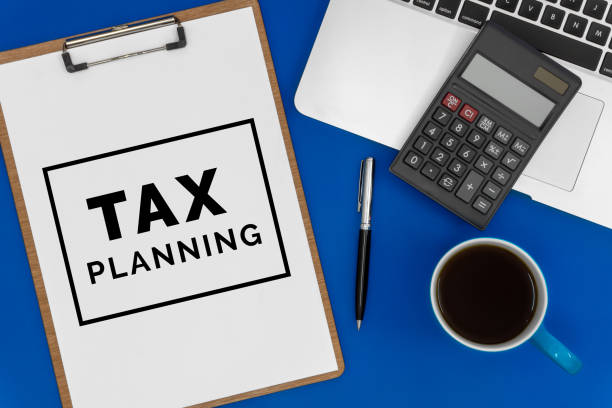
The Importance of Tax Planning for Small Business Growth
Efficient tax planning for small business is essential for owners to achieve long-term business growth and goes beyond simple compliance. Through prudent tax management, you may maximize cash flow, save money, and reinvest in your business. Managing taxes is among the most important of the obstacles that come with running a small business, but it is also a fascinating journey full of potential. Tax planning for small business should be a strategic tool that can help their business succeed, to not only meet deadlines or avoid penalties. By taking a – careful approach to tax planning, you can lower costs, improve cash flow, and more efficiently distribute resources to attain long-term business growth. We will look at the importance of tax planning. We will learn how to maximize your tax situation, and how it can help your business succeed in the future.
Understanding Tax planning for small business
Tax planning is the act of examining your financial status to make sure you are utilizing all of the legal tax credits, deductions, and methods. For a small firm, this entails determining ways to lower taxable income, postponing tax obligations, and making sure that all relevant regulations are following properly. Small business owners frequently juggle operations, marketing, and sales, among other responsibilities. However, until filing season draws near, tax planning is frequently neglecting. Ignoring proactive tax planning for small business, however, can result in lost opportunities and unforeseen costs.
Why tax planning matters for business growth
Tax planning is essential because it helps you comprehend the tax implications of your financial decisions and allows you to take advantage of opportunities to save money on taxes. Effective tax planning can result in significant savings, enabling you to reimagine your business, save for retirement, or engage in activities that are more enjoyable. Spyglass accounting and financial services is presenting few benefits of tax planning for small business:
- Increasing Cash Flow
Tax planning enables you to find possible areas for savings, including depreciation, employee benefits, and business expense deductions. These savings, giving you more money to spend on things like marketing, staff development, or inventory, may improve your cash flow.
- Preventing Fines and Legal Problems
Penalties and audits may follow noncompliance with tax regulations, which can be complicated. By keeping up with your tax responsibilities, you lower the possibility of expensive mistakes and safeguard the reputation of your business
- Strategic Decision-Making
Being aware of your tax status enables you to make wise business decisions. For instance, you can make better plans if you are aware of the tax ramifications of expanding your business, buying equipment, or adding more staff.
Key Tax Planning Strategies for Small Businesses
Deferral Income
If you expect to be in a lower tax bracket, it may be advantageous to postpone income to the following fiscal year. Think about postponing bills or using retirement assets that are lawfully postpone income. Your tax responsibilities impacted by an invoice’s timeliness. Postponing revenue to the next year may be the wisest option in some cases, particularly when the fiscal year ends.
- Advantage Tax Credits and Deductions: Make sure you claim all available credits and deductions by keeping thorough records of your business expenses.
- Select the Best Business Structure: business entity influences your tax obligations (corporation, LLC, or sole proprietorship). Seek advice from a tax expert to identify the best structure.
- Prepare for Quarterly Taxes: Prevent surprises by estimating and paying your taxes on a quarterly basis, which helps manage cash flow and lessens year-end stress. Some expenses may have special rules or limitations, such as the 50% limit on meals and entertainment
How Tax Planning Drives Sustainable Growth
Instead of just lowering tax expenses, the purpose of integrating tax planning into your whole business strategy is to create a plan for sustainable growth. By increasing their financial stability and freeing up funds for innovation and growth, small firms who invest in tax planning obtain a competitive advantage.
Conclusion
A key component of long-term business growth is efficient tax planning for small businesses. You can lower costs, increase cash flow, and make more assured investments in the future of your company by actively managing your tax responsibilities. Tax planning is about protecting your financial well-being and generating growth opportunities, not just about complying with the law.
Do not put off managing your money until tax season. Unlock the full potential of smart tax planning by collaborating with a reliable tax expert right now at spyglass accounting and financial services. Take action right away to guarantee that your business prospers and expands in the upcoming years!

